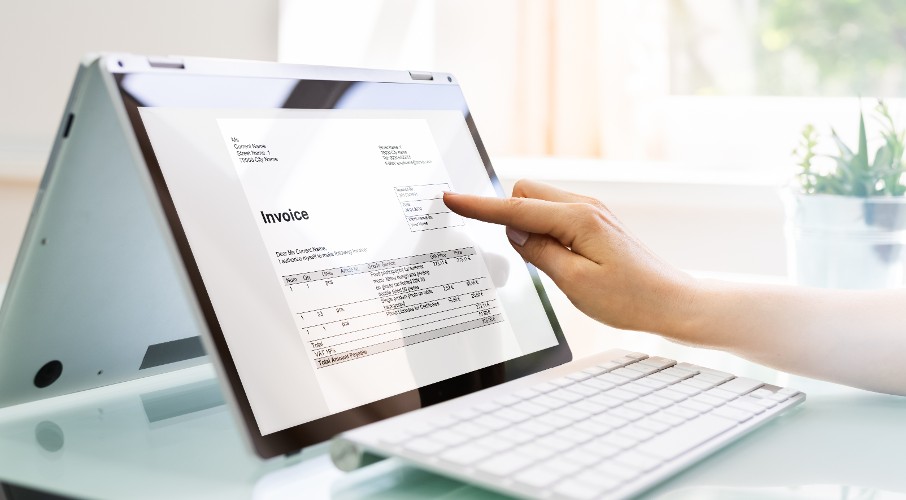What is an invoice?
Invoice Definition
An invoice is a document issued by a seller to a buyer indicating the products or services offered, the quantity and price, and the terms of payment. It serves as a request for payment from the buyer to the seller and includes information, such as the invoice number, date, and payment due date.
An invoice can be used as a proof of purchase, record of sale, and a reference for accounting and tax purposes.
In addition to the basic information, an invoice may also include other details, such as the buyer and seller's contact information, shipping or delivery information, item descriptions and specifications, tax and discount amounts, and total amount due. Some invoices may also have additional terms and conditions, such as late payment fees or interest charges.
Typically, invoices are sent by the seller to the buyer after the goods or services have been delivered or completed. The buyer is expected to make payment within a specified period of time, which could be immediate or within 30, 60, or 90 days. In some cases, an invoice may also act as a purchase order or a contract between the buyer and seller.
Invoices can be handwritten or printed on paper, or they can be generated electronically and transmitted via email or other digital means. Depending on the business or industry, there may be specific regulations or requirements for invoicing, such as the use of specific formats or the inclusion of specific information.
Invoicing is an essential part of business operations, enabling businesses to create and maintain accurate financial records, process payments, and manage cash flow. Properly controlling invoicing is critical to the success of a business and can help ensure timely payments, accurate financial reporting, and optimal customer relations.
Keeping track of invoices is important for businesses, as it allows them to reconcile payments and outstanding amounts, monitor customer credit limits, and identify any late or delinquent payments. Invoices are also useful for tax purposes, as they provide a record of revenue and expenses, which are essential for calculating taxes owed.
Many businesses use accounting software or invoicing platforms to create, send, and manage invoices. These tools typically offer features such as automated invoicing, online payment processing, and reporting capabilities, which help businesses streamline their invoicing operations and maintain accurate financial records.
Some types of invoices include:
- Proforma invoice - A document that outlines the details of a sale before it is finalized. It is often used to create a quote or estimate for goods or services, and can be used for customs purposes for international sales.
- Commercial invoice - A legal document that confirms the agreement between a buyer and a seller and includes important information such as the type of goods sold, their value, and the payment terms and conditions.
- Recurring invoice - An invoice that is sent at regular intervals, such as monthly or quarterly, for goods or services that are provided on an ongoing basis, such as subscription services.
- Credit invoice - An invoice that is issued to offset or correct a previous invoice that contained incorrect information, or to provide a refund or credit to the customer.
- Debit invoice - An invoice that is issued to adjust an account balance, often used to add charges or fees to an existing invoice.
- Progress invoice - An invoice that is issued in stages, typically used for projects that involve multiple milestones or deliverables.
It's important for businesses to choose the appropriate type of invoice for their transaction to ensure clarity and accuracy in the sale and payment process.






